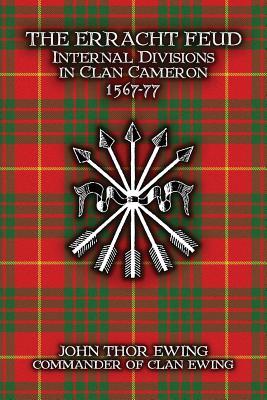Bloodfeud was built into the structure of society in sixteenth-century Scotland, and feuding was governed by its own rules. This book examines a turbulent period in Clan Cameron's history, spanning the last years of the chiefship of Donald Dow McConnell (1553-69) and the early years of Allan McConnell Dow (1569-1647). As rival factions vied for power, it was unclear who would lead the clan into the next century.
Usually misunderstood as a blatant attempt by the Camerons of Erracht to seize power for themselves which was defeated through the stalwart resistance of a handful of loyal men, this simple morality tale quickly unravels as it becomes clear that even the identities of the main protagonists have become confused.
In this new study of the Erracht Feud, Ewing leads the reader on a detective journey through the maze of historical evidence to reach the heart of a complex and fascinating story of this sixteenth-century Scottish family quarrel. Along the way, we learn about customs and practices among the early Highlanders.
The story of the Erracht Feud is significant not only for the history of Clan Cameron and Lochaber, but for how we understand the nature of feuds and feuding in Early Modern Scotland.
